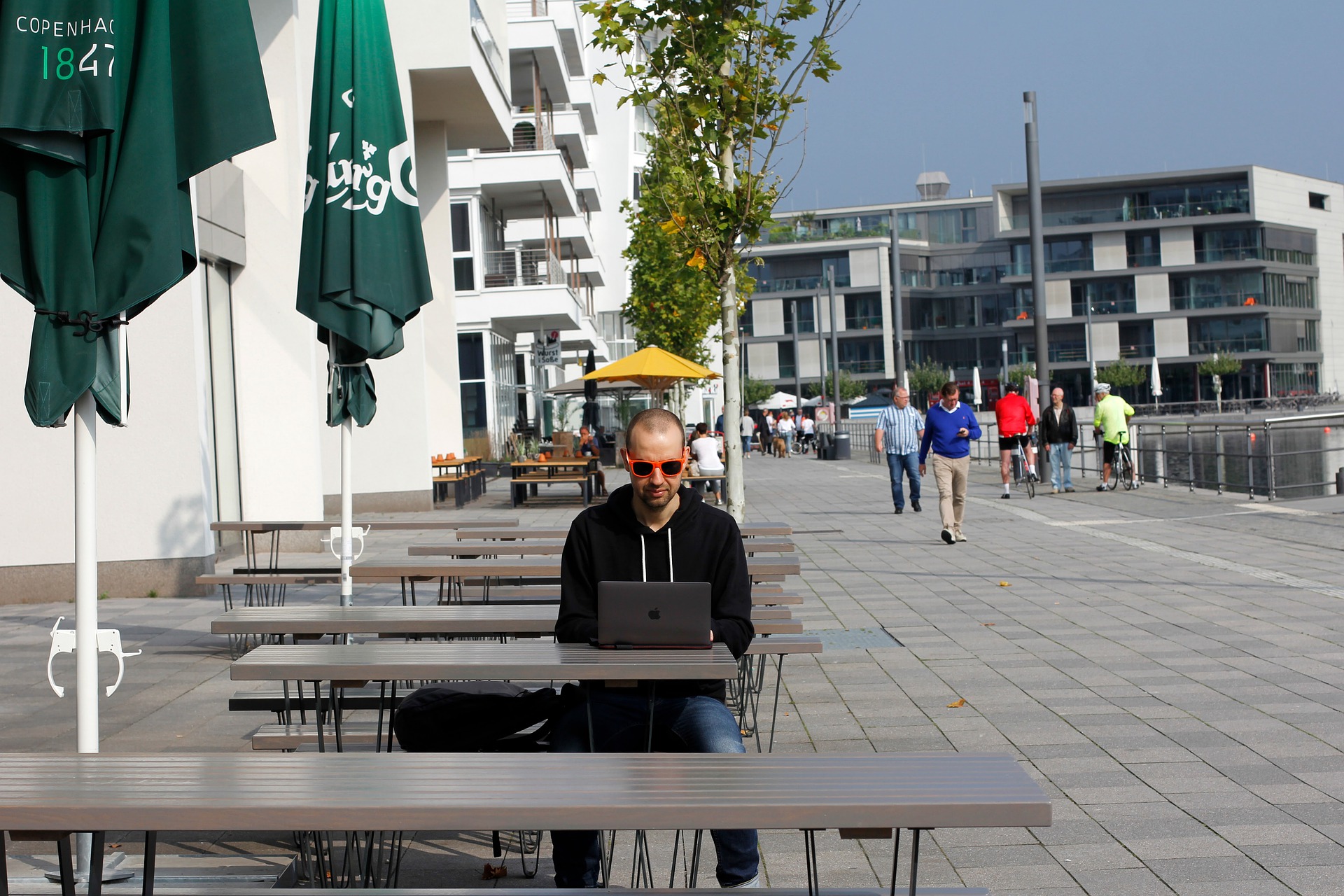
As my morning coffee brews, I get a text message from an old colleague from a long time ago. Let’s call her Helen. My eyes still bleary with sleep, the words of Helen's text become clearer. It appears her services are no longer needed at the company where she and I met as colleagues several years ago, where she has remained a dedicated employee since.
Helen is a great manager, focusing on logistic processes. Her work is to make sure that all of the necessary material is in stock—but not too much. Just enough for two of the days of production. Her typical work consists of Excel spreadsheets that predict and manage quarterly demand.
Recently, though, there has been a shift in the company’s pace. Every month the pulse becomes faster, and Helen has started to get the sense that her skill set may be in jeopardy. The target goals of her work—set by her manager using some CRM tool designed to get maximum efficiency out of employees—kept creeping higher and higher. She realized that even by keeping on top of things at a quarterly rate, she had become too slow. Reading her texts, it’s like I can feel her anxiety through the phone screen.
Helen reached out to me because she knows that I am a futurist. (Otherwise known as a geek!) She asked me what skill set to learn in order to be prepared for the future of work.
I sat back for a few moments, speechless, as the weight of the situation sunk in before I even had my morning coffee. I wrote back that I wanted to give her query some deep thought for a few days before responding. While Helen's case is just one example of how we are living in an accelerated era, it is happening to so many people, across so many different industries. Companies need to compete at faster and faster rates. It won’t give you any rest.
Non-stop changes
If you sit with this for a moment you know it intuitively to be true: The future is coming on fast. We can all feel it.
Digital makes everything go faster. That’s all. If you are not ahead of the curve, you are already too late.
Because of the speed of changes, things that we are used to seeing happen over the course of six months or a year now could happen even tomorrow. Covid only accelerated that. Think about the trend towards working remotely vs. at the office.

Once a company goes digital by starting a website and using email, the data that’s coming in is like a tsunami. It’s impossible for humans to keep up with the pace of the data coming in, to synthesize it and made calls as to what to do next for the business. There’s simply too much to process. By the time humans can look at and process all the data that has come in, and begin to implement some strategies that take it into account, the market has shifted again.
What is the future of jobs?
There are three types of work that make up any business: Rote work, decision making, and creative work. In the old paradigm, rote work typically made up about half of the work any business did, with the rest of the energy split evenly between decision making and creative work. In the future, anything that can be repeated and written will be automated. AI will eliminate almost all repetitive jobs (i.e. rote work).
The World Economic Forum's recently released Future of Jobs Report 2020 estimates that, by 2025, 85 million jobs "may be displaced by a shift in the division of labour between humans and machines." However, the report goes on to say that 97 million new roles "may emerge that are more adapted to the new division of labour between humans, machines and algorithms."
This is the silver lining: While rote work is going away for humans, the structure of business after automation will shift so that humans will be responsible for more creative work and decision making. This can potentially mean more humans getting to do work that excites and engages them.
In other words, there is an opportunity to make this shift into the Fourth Industrial Revolution a truly great chapter in the history of humanity, but we have to rise to the occasion and make it so.
"Over the coming decade, a non-negligible share of newly created jobs will be in wholly new occupations, or existing occupations undergoing significant transformations in terms of their content and skills requirements," the report reads.
What jobs will be available in the future?
There will be work for humans in the future, it’s just unclear exactly what that work will be. Though, there are some predictions. "AI Psychologist" and "Extinct Species Revivalist" are a couple science fiction-sounding options some speculate we'll see business cards before too long.
In 2019, the Bureau of Labor Statistics released data on the fastest growing occupations and projected into 2029. Here they are:
Fastest growing jobs 2020, projected into 2029
Wind turbine service technicians ($52,910)
Nurse practitioners ($109,820)
Solar photovoltaic installers ($44,890)
Occupational therapy assistants ($61,510)
Statisticians ($91,160)
Home health and personal care aides ($25,280)
Physical therapist assistants ($58,790)
Medical and health services managers ($100,980)
Physician assistants ($112,260)
Information security analysts ($99,730)
Source: Employment Projections program, U.S. Bureau of Labor Statistics data.
Skills for the future
The World Economic Forum report states it explicitly, "Candidates for jobs of the future will have to acquire new skills if they want to be competitive in the new labor market." So what are those skills?
We have all been hearing for a while now that "soft skills" will be in-demand for jobs of the future. Counseling and psychology, the healing professions—these fields are expected to grow. Not coincidentally, these are the fields that require you to double-down on your humanness.
"The emerging professions showcase the continuing importance of human interaction in the new economy through roles in the care economy; in marketing, sales and content production; as well as roles where a facility or aptitude for understanding and being comfortable working with different types of people from different backgrounds is critical," reads the report.
The report surveyed about the skills they perceived to have either stable or increasing demand for 2025 and beyond. Here are the top 10:
In-demand skills for jobs of the future
Analytical thinking and innovation
Active learning and learning strategies
Complex problem-solving
Critical thinking and analysis
Creativity, originality and initiative
Leadership and social influence
Technology use, monitoring and control
Technology design and programming
Resilience, stress tolerance and flexibility
Reasoning, problem-solving and ideation
and I will include 11 because I like it. 11. Emotional intelligence.
Source: World Economic Forum Future of Jobs Report, 2020
At our digital marketing company, Y-Verge, we had some fun creating a poetic interpretation of this list of skills, because we believe the primary skill required for success in the future is an exploratory mindset.

Mindset of the future: Excited about uncertainty
To me, the main thing about the future is that we can't predict it. It is uncertain. The World Economic Forum seems to agree with me because their report states that covid lockdown measure and their economic impacts have created a "highly uncertain outlook" for the labour market and have accelerated the arrival of the future of work. Uncertain is a key word here.
In the book Sapiens (one of my favorites), historian Yuval Noah Harari argues that it was the exploratory mindset that led to European dominance over the world. Other empires, such as the Chinese and the Ottomans, had far greater military and economic power in the 18th century. Yet, it was the Europeans' quest for understanding that made the difference.
The technological advances we are currently facing, and the rapid pace of change, make all of our lives and careers similar to what those early explorers faced hundreds of years ago.
To explore the unknown future, you must be able to take comfort in experiencing repeated failures and feeling lost all the time. We find the accomplishments of the great explorers from history so impressive precisely because they didn't know what they were getting into. Even with so many unknowns, they dared to venture forth.

That brings me back to Helen's question. After mulling it over for days, I started to realize that the answer is not a rigid list of skills, but more of a mindset. While there are definitely skills that will help you be more effective in the AI era there is, above all, one mindset that will be necessary.
With so many changes happening daily, one of the outcomes is increased uncertainty. Dealing with uncertainty is not about making lists and trying to project a five-year horizon. In the age of uncertainty, no one is an expert. Instead, we must be able to figure it out as we go. We have to be like the explorers and sail straight into the uncertainty.
To be successful, I realized the main “skill” to develop is a mindset of being excited about uncertainty.
I really mean excited. It is not enough to be able to tolerate ambiguity and uncertainty—you have to turn fear into excitement, and when you see uncertainty you have to run straight into it.
That’s my challenge, and I invite you to take it on as yours, too. To me, this quality is the essence of the future of jobs.